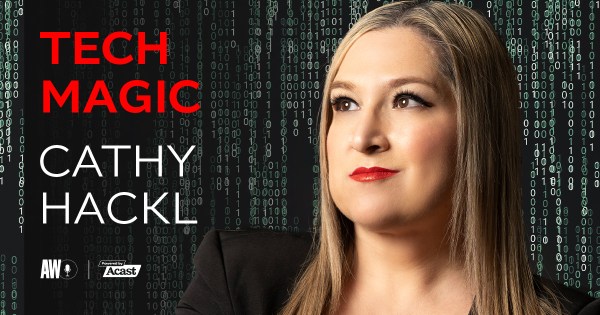In the season finale of TechMagic, hosts Cathy Hackl and Lee Kebler unpack the latest tech trends, from Meta’s neural interface bracelet and Apple’s liquid glass UI redesign to Nintendo Switch 2’s record-breaking launch.
They’re joined by special guest Johanna Salazar, co-founder of FoodStream Network, who shares her mission to build human-centered tech that addresses food insecurity and fosters community.
The episode also explores pressing topics such as metadata copyright in AI training, the future of voice communication, and why inclusive, bilingual platforms are crucial in today’s global digital ecosystem.
With industry insights and bold predictions, Cathy, Lee, and Johanna offer a powerful close to the season and tease what’s ahead when the show returns in September.
Come for the tech, stay for the magic!
Episode highlights:
Amazon’s AI Bracelet Backlash — Cathy and Lee unpack Amazon’s acquisition of Bee, a $50 AI-powered wristband that records and summarizes conversations. They debate privacy implications, real-time processing claims, and whether consumers should pay for a product that monetizes personal data, raising broader questions about surveillance, value exchange, and wearable tech ethics.
Apple’s Liquid Glass Controversy — Cathy and Lee critique Apple’s new “liquid glass” UI, calling out legibility issues and misleading product framing. They explore how the redesign reflects Vision Pro influence, yet lacks functional clarity, suggesting Apple may have prioritized flash over usability, and hinting at a possible course correction via public beta feedback.
Tech With a Purpose: The Four Pillars — Johanna shares her framework for responsible tech: Profits, Process, People, and Planet. Rooted in her global media and food security work, the model urges tech founders to balance financial goals with operational excellence, human needs, and environmental impact, building businesses that are resilient, ethical, and future-ready.
Designing Human-First Technology — Johanna discusses why community-driven design beats tech-for-tech’s-sake. Through FoodStream’s work with disabled students, she explains how tools like VR are only adopted when they clearly serve learning goals. The takeaway: Empathy, trust, and cultural context must guide development if tech is to achieve meaningful, sustainable impact.
